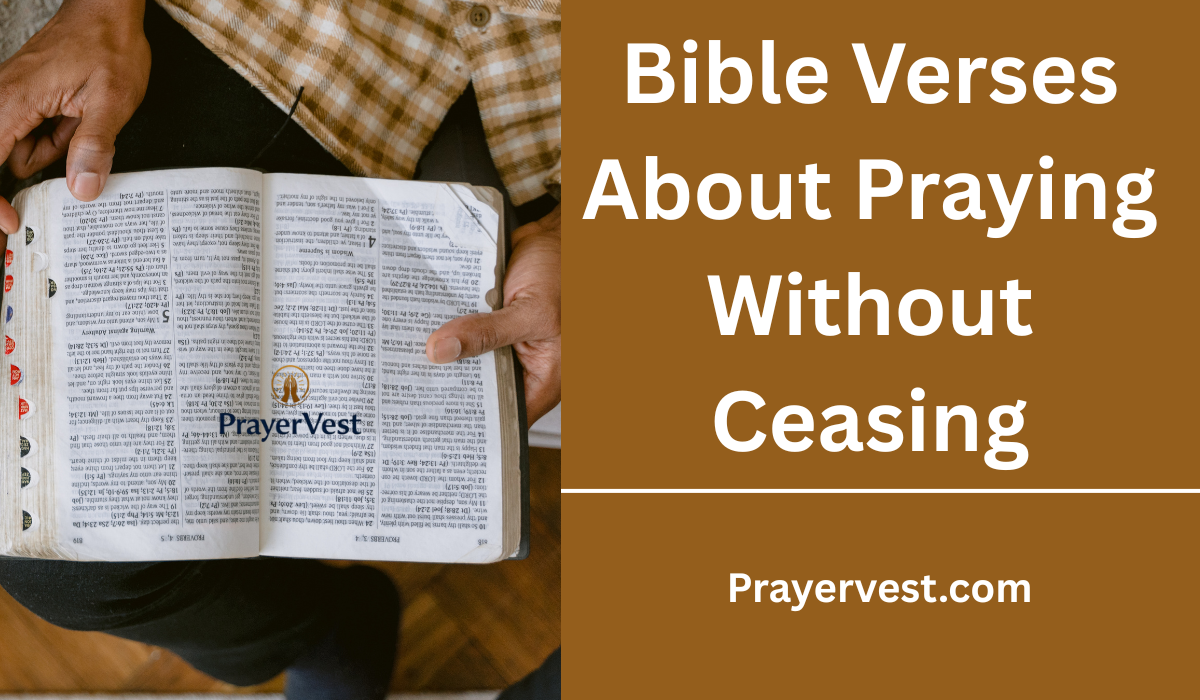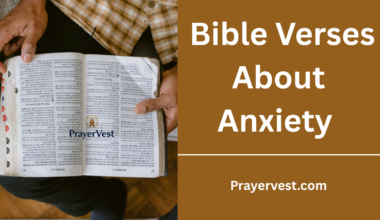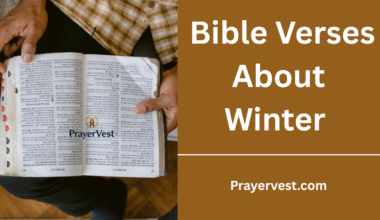Prayer, a direct dialogue with God that fosters connection, gives strength, and brings calm in every situation, is the lifeblood of the Christian faith. However, the Bible encourages us to “pray without ceasing” (1 Thessalonians 5:17), which pushes us to go even farther in our prayer.
This directive may appear unattainable at first, but it has nothing to do with talking nonstop or avoiding your obligations in life. Rather, it suggests developing an ongoing awareness of God’s presence and transforming ordinary events into chances for spiritual communication.
Maintaining the posture of prayer in the heart at all times is what it means to pray continuously. It entails starting each day with thankfulness, asking God’s guidance while making decisions, praying in private even during the busiest times, and turning to Him in stressful situations.
Scripture encourages believers to view prayer as a continuous dialogue that influences their thoughts, deeds, and reactions throughout the day, rather than limiting it to a certain time or official practice. As individuals who are always in contact with their Creator, prayer becomes more than just what we do.


Scriptures that exhort, educate, and motivate believers to adopt this practice of constant prayer may be found all over the Bible. From the epistles that exhort us to continual supplication to the Psalms that abound in praise, God’s Word offers direction and inspiration for integrating prayer into daily life. By examining these verses, we see that persistent prayer is a gift rather than a burden—a means of becoming closer to God, experiencing His presence, and living out His love and power every day.
40 Powerful Bible Verses About Praying Without Ceasing (2026)
1. 1 Thessalonians 5:17
“Pray without ceasing.”
In these three words, Paul delivers one of the most profound exhortations in Scripture. Prayer, as Paul presents it, is not confined to ritual or formal occasions but is meant to permeate every aspect of a believer’s life. To pray without ceasing is to live in unbroken communion with God, to carry an attitude of dependence, gratitude, and worship throughout the day. It means allowing every thought, decision, and action to be shaped by awareness of God’s presence. This does not mean constant speaking, but rather cultivating a heart posture that remains open and attentive to God in every circumstance.
2. Ephesians 6:18
“And pray in the Spirit on all occasions with all kinds of prayers and requests.”
Here, Paul connects prayer with spiritual warfare. Just as the armor of God equips the believer for battle, prayer sustains and empowers them for victory. Praying “in the Spirit” means aligning our prayers with God’s will, depending on His guidance rather than our own limited understanding. The phrase “on all occasions” makes it clear that prayer is not seasonal or situational but constant and adaptable—whether in joy, sorrow, thanksgiving, intercession, or supplication. Paul is urging believers to use prayer as a continual weapon and shield, ensuring that no moment of life is left untouched by God’s presence and intervention.
3. Romans 12:12
“Be joyful in hope, patient in affliction, faithful in prayer.”
In this verse, Paul ties prayer to endurance and joy. Prayer is presented not as an optional discipline but as the very heartbeat of the Christian’s perseverance. To be faithful in prayer is to remain steadfast in communion with God through trials, maintaining joy that springs from hope and patience that sustains in suffering. Prayer becomes the anchor that holds the believer steady amid life’s storms, reminding them that joy is rooted not in changing circumstances but in the unchanging promises of God. Continuous prayer transforms affliction into an opportunity for spiritual growth and resilience.
4. Colossians 4:2
“Devote yourselves to prayer, being watchful and thankful.”
Paul’s instruction highlights prayer as both discipline and devotion. To “devote” oneself to prayer means persistence, intentionality, and wholehearted commitment. Being “watchful” points to the spiritual alertness that comes from staying attuned to God’s activity and the enemy’s schemes. Gratitude ensures that prayer does not become mechanical or self-centered but is filled with worship and acknowledgment of God’s goodness. This verse portrays prayer as a vigilant lifestyle, rooted in thanksgiving and carried out with alertness, demonstrating a heart that constantly seeks and acknowledges God.
5. Luke 18:1
“Then Jesus told his disciples a parable to show them that they should always pray and not give up.”
This verse introduces the parable of the persistent widow, where Jesus illustrates the power of perseverance in prayer. The lesson is clear: prayer is not to be abandoned when answers seem delayed. Instead, believers are to remain steadfast, trusting in God’s perfect timing and justice. Jesus emphasizes that continual prayer reflects faith, while giving up reveals doubt. To pray always is to cultivate endurance and unwavering trust that God hears and responds, even when circumstances suggest otherwise.
6. Philippians 4:6
“Do not be anxious about anything, but in every situation, by prayer and petition, with thanksgiving, present your requests to God.”
Paul contrasts worry with prayer, teaching that prayer is God’s remedy for anxiety. The instruction to pray “in every situation” removes all limits—no problem is too small, no burden too great. Adding thanksgiving turns prayer into an act of faith, acknowledging God’s goodness even before answers arrive. Continual prayer, then, is the exchange of anxiety for peace, a habit that trains the heart to trust God rather than dwell in fear.
7. Psalm 55:17
“Evening, morning and noon I cry out in distress, and he hears my voice.”
David’s words reveal that prayer was woven into his daily rhythm. By lifting his voice at all hours, he demonstrates that prayer is not confined to a single moment of the day but is a constant part of life. His example teaches that unceasing prayer does not mean never pausing but rather maintaining regular, intentional communication with God, trusting that God is always attentive and ready to respond.
8. Daniel 6:10
“Three times a day he got down on his knees and prayed, giving thanks to his God, just as he had done before.”
Daniel’s commitment to prayer, even under threat of death, shows the depth of his devotion. Prayer was not an afterthought for him but a non-negotiable priority. His practice of kneeling three times daily reminds believers that praying without ceasing is not only inward awareness but also outward discipline. Daniel’s faithfulness shows that prayer is the lifeline of believers, one that cannot be broken even by opposition.
9. 1 Chronicles 16:11
“Look to the Lord and his strength; seek his face always.”
This verse commands continual seeking after God, portraying prayer as a pursuit of His strength and presence. To pray without ceasing is to keep turning one’s heart toward God, relying not on personal power but on divine help. This ceaseless seeking keeps the believer rooted in dependence and intimacy with God, who delights in being pursued.
10. Psalm 105:4
“Look to the Lord and his strength; seek his face always.”
Repeated from Chronicles, this verse emphasizes persistence in pursuit of God. Prayer here is not merely petition but seeking God Himself. To pray without ceasing is to recognize that life’s deepest satisfaction comes not from blessings but from God’s presence. This call challenges believers to anchor prayer in desire for God above all else.
11. Matthew 26:41
“Watch and pray so that you will not fall into temptation. The spirit is willing, but the flesh is weak.”
In Gethsemane, Jesus warns His disciples that prayer is protection against temptation. Ceaseless prayer keeps the spirit alert when the flesh is weak. This verse shows that unceasing prayer is not only about communion but also about vigilance, enabling believers to withstand spiritual attacks. It underscores prayer as a shield that keeps the believer strong in moments of weakness.
12. Luke 21:36
“Be always on the watch, and pray that you may be able to escape all that is about to happen, and that you may be able to stand before the Son of Man.”
Jesus connects prayer with readiness for His return. Unceasing prayer cultivates spiritual alertness, preparing believers to endure trials and stand faithful at the final judgment. Prayer here is pictured as both watchfulness and endurance, showing that constant communion with God equips His people to be steadfast until the end.
13. James 5:16
“The prayer of a righteous person is powerful and effective.”
James affirms the potency of consistent, righteous prayer. To pray without ceasing is to unleash continual spiritual power that brings healing, restoration, and breakthrough. Prayer is not passive but active, releasing God’s will into earthly situations. This verse reassures believers that their prayers matter and carry divine effectiveness when offered faithfully.
14. 1 Timothy 2:8
“Therefore I want the men everywhere to pray, lifting up holy hands without anger or disputing.”
Paul calls for prayer to be universal, pure, and constant. The act of lifting holy hands symbolizes surrender and purity of heart. Praying without ceasing here is pictured not only as persistence but also as prayer that flows from a heart cleansed of strife. It reveals that the attitude and posture of prayer matter as much as its frequency.
15. Nehemiah 1:6
“Let your ear be attentive and your eyes open to hear the prayer your servant is praying before you day and night.”
Nehemiah’s example shows what unceasing prayer looks like in intercession. His prayer was continuous, heartfelt, and persistent as he sought God’s mercy on behalf of Israel. Day and night he carried the burden before God, teaching that ceaseless prayer often involves laboring for others in intercession.
16. Psalm 88:1
“Lord, you are the God who saves me; day and night I cry out to you.”
This psalm captures the raw cry of one in deep distress, yet it shows faith through continual prayer. The psalmist does not stop calling on God, even in despair. Ceaseless prayer here is not polished or perfect but desperate and honest, proving that prayer without ceasing means bringing every state of the heart before God.
17. Acts 1:14
“They all joined together constantly in prayer, along with the women and Mary the mother of Jesus, and with his brothers.”
After Jesus’ ascension, the early church modeled persistence in prayer. Their constant gathering in prayer demonstrates the power of united, unceasing intercession that prepared them for Pentecost. This shows that ceaseless prayer is not only individual but communal, strengthening the body of Christ for God’s purposes.
18. Acts 2:42
“They devoted themselves to the apostles’ teaching and to fellowship, to the breaking of bread and to prayer.”
The early church is described as a community marked by devotion, and prayer was central to their identity. Prayer was not occasional but continual, woven into their daily lives. Their devotion reflects that ceaseless prayer is the heartbeat of Christian community, sustaining fellowship, unity, and spiritual growth.
19. Acts 12:5
“So Peter was kept in prison, but the church was earnestly praying to God for him.”
When Peter was imprisoned, the church’s response was unrelenting prayer. This verse shows the power of communal, continuous intercession in times of crisis. Their ceaseless prayers brought divine intervention, proving that persistent prayer can unlock deliverance and miracles in impossible situations.
20. Acts 16:25
“About midnight Paul and Silas were praying and singing hymns to God, and the other prisoners were listening to them.”
Even in chains, Paul and Silas demonstrate what it means to pray without ceasing. Their midnight prayers were not hindered by suffering but overflowed into praise. This reveals that unceasing prayer transforms prisons into sanctuaries and despair into worship, influencing not only the pray-ers but also those who witness it.
21. Psalm 116:2
“Because he turned his ear to me, I will call on him as long as I live.”
The psalmist’s testimony reveals a life shaped by God’s attentiveness. Because God listens, the natural response is to call on Him continually. This verse highlights that unceasing prayer is not duty-driven but love-driven—flowing from the assurance that God inclines His ear to His children. A lifetime of prayer becomes the believer’s response to God’s faithful listening.
22. Psalm 34:15
“The eyes of the Lord are on the righteous, and his ears are attentive to their cry.”
Here we see God’s nearness to those who pray. His eyes and ears are ever-focused on His people, which encourages them to pray without ceasing. Knowing that God never ignores the cries of the righteous provides the confidence to bring every burden, joy, and need before Him continually.
23. Psalm 141:2
“May my prayer be set before you like incense; may the lifting up of my hands be like the evening sacrifice.”
Prayer is portrayed as worship, rising before God like incense. To pray without ceasing, then, is to live a life that continually offers worship and intercession, just as incense continually burned before God in the temple. Every prayer becomes an act of devotion and consecration.
24. Jonah 2:1
“From inside the fish Jonah prayed to the Lord his God.”
Jonah’s prayer in the belly of the fish reminds us that prayer is not confined by circumstance or location. Even in the depths, Jonah cried out to God. To pray without ceasing means to know that no matter where life takes us—even in dark or confined places—God hears. Prayer becomes the lifeline that keeps hope alive.
25. Psalm 145:18
“The Lord is near to all who call on him, to all who call on him in truth.”
This verse assures believers that God’s nearness is tied to continual calling on Him. Praying without ceasing involves honesty and sincerity in approaching God. It is not vain repetition but authentic conversation with a God who draws close to those who seek Him earnestly.
26. Lamentations 2:19
“Arise, cry out in the night, as the watches of the night begin; pour out your heart like water in the presence of the Lord.”
Here, prayer is pictured as an unrestrained outpouring of the heart, day or night. To pray without ceasing means to hold nothing back, allowing the soul’s deepest cries to flow freely to God. Night or day, joy or sorrow, the invitation is to keep pouring out one’s heart before Him.
27. Isaiah 62:6–7
“You who call on the Lord, give yourselves no rest, and give him no rest till he establishes Jerusalem and makes her the praise of the earth.”
Isaiah portrays prayer as relentless intercession that refuses to quit until God’s purposes are fulfilled. Unceasing prayer is persistence born out of faith, pressing into God’s promises and refusing to let go until breakthrough comes. It shows that prayer is both divine partnership and holy insistence.
28. Psalm 27:8
“My heart says of you, ‘Seek his face!’ Your face, Lord, I will seek.”
Prayer here is presented as a heart response to God’s invitation. To pray without ceasing is to continually seek His face, not just His hand. It’s about intimacy, communion, and longing for God Himself more than His gifts. This pursuit becomes the foundation of unbroken prayer.
29. Hebrews 4:16
“Let us then approach God’s throne of grace with confidence, so that we may receive mercy and find grace to help us in our time of need.”
This verse emphasizes the privilege of constant access to God. To pray without ceasing is to continually draw near to the throne of grace, knowing that help and mercy are always available. It invites believers into a lifestyle of bold approach, not hesitation, in every need.
30. Psalm 119:147
“I rise before dawn and cry for help; I have put my hope in your word.”
The psalmist models prayer as a daily discipline, rising early to seek God. Ceaseless prayer is nurtured by setting aside intentional time, beginning the day with God. This verse shows how prayer and the Word work together, with hope anchored in God’s promises and expressed through constant prayer.
31. Psalm 119:164
“Seven times a day I praise you for your righteous laws.”
Prayer here takes the form of continual praise. The psalmist shows that ceaseless prayer is not only asking but also worshiping. Repeated praise throughout the day cultivates awareness of God’s goodness and aligns the heart with His will, keeping the soul in perpetual communion.
32. Psalm 42:8
“By day the Lord directs his love, at night his song is with me—a prayer to the God of my life.”
This verse describes prayer as both a song and a constant dialogue with God, day and night. Ceaseless prayer is living with the awareness of God’s love directing us by day and sustaining us by night. It transforms prayer into a rhythm of life that never ceases.
33. Psalm 17:6
“I call on you, my God, for you will answer me; turn your ear to me and hear my prayer.”
Prayer here is built on confidence in God’s faithfulness to answer. Praying without ceasing means continually calling upon Him with expectation, knowing He hears. It reflects a posture of dependence that does not waver, rooted in trust that God always responds in His perfect wisdom.
34. Psalm 18:6
“In my distress I called to the Lord; I cried to my God for help. From his temple he heard my voice; my cry came before him, into his ears.”
The psalmist testifies that God hears prayer even in moments of deep distress. Ceaseless prayer is often born in times of desperation, but it is sustained by the assurance that God’s ears are always open. Every cry is precious to Him, and none goes unheard.
35. Psalm 61:8
“Then I will ever sing in praise of your name and fulfill my vows day after day.”
This verse connects prayer with lifelong devotion. To pray without ceasing is to let praise and worship become daily offerings. It shows that unceasing prayer is a life rhythm—day after day—of fulfilling vows to God through song, faithfulness, and communion.
36. Psalm 109:4
“In return for my friendship they accuse me, but I am a man of prayer.”
Even in betrayal and false accusation, the psalmist defines himself by prayer. This reveals that ceaseless prayer is an identity, not an activity. To be “a man of prayer” means living in such constant communion with God that prayer shapes who you are, even in adversity.
37. Job 16:20
“My intercessor is my friend as my eyes pour out tears to God.”
Job’s lament reveals that even in suffering, prayer was his instinctive response. His tears became prayers before God, showing that prayer without ceasing includes silent cries and wordless groans. Unceasing prayer is not always eloquent but always heartfelt, lifting even tears into God’s presence.
38. Psalm 32:6
“Therefore let all the faithful pray to you while you may be found; surely the rising of the mighty waters will not reach them.”
This verse calls believers to continual prayer as protection against life’s floods. Ceaseless prayer creates a place of refuge, ensuring that when trials rise, they do not overwhelm. The faithful are urged to seek God persistently, finding safety in His presence.
39. Luke 6:12
“One of those days Jesus went out to a mountainside to pray, and spent the night praying to God.”
Jesus Himself modeled unceasing prayer, spending entire nights in communion with the Father. His example teaches that prayer is the source of strength for major decisions and spiritual endurance. To pray without ceasing is to follow His pattern—making prayer the foundation of life and ministry.
40. Revelation 8:4
“The smoke of the incense, together with the prayers of God’s people, went up before God from the angel’s hand.”
This heavenly picture shows the eternal value of prayer. The prayers of God’s people rise continually before Him like incense, never wasted or forgotten. To pray without ceasing is to join in a divine rhythm that transcends time, knowing that every prayer is treasured in God’s presence forever.
Conclusion
Continuous prayer is a lifestyle that brings God into every aspect of our lives, not just a spiritual discipline. Prayer is not restricted to a specific location, position, or time of day, as the scriptures we have studied tell us. Rather, it is the lifeblood of a believer’s relationship with God, sustaining us in His serenity, knowledge, and power under all conditions. By praying consistently, we allow God to direct our thoughts, protect our hearts, and influence how we react to the world.
May you discover new motivation to incorporate prayer into your daily routine as you reflect on these verses. Continuous prayer is an open conduit to God’s presence, whether it is through silent contemplation, words of praise, or hushed requests in times of need. It makes our everyday lives more in line with His perfect will, improves our faith, and increases our intimacy with Him. Accept this invitation, and allow prayer to serve as the solid groundwork that sustains you during all of life’s pleasures, difficulties, and phases.






